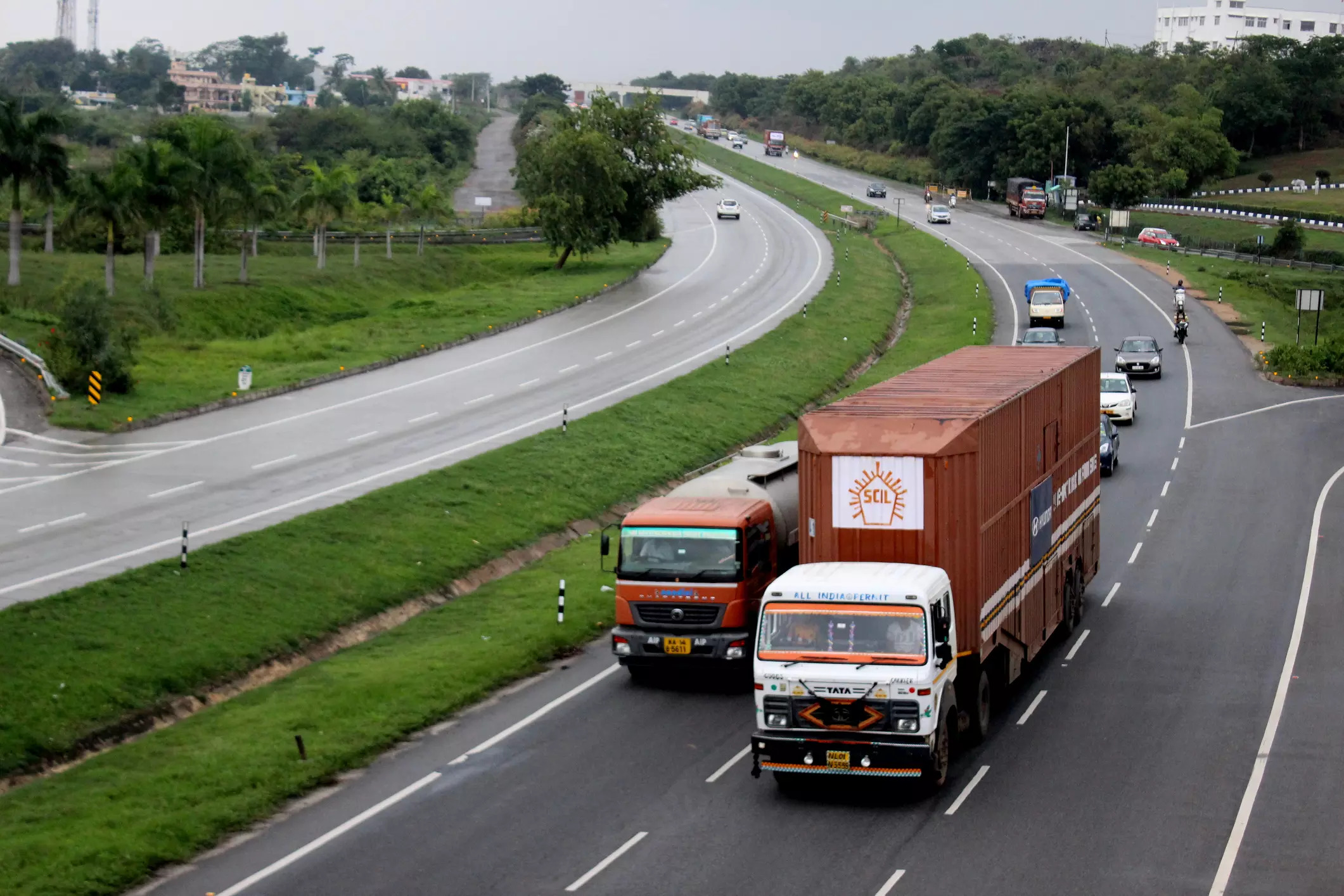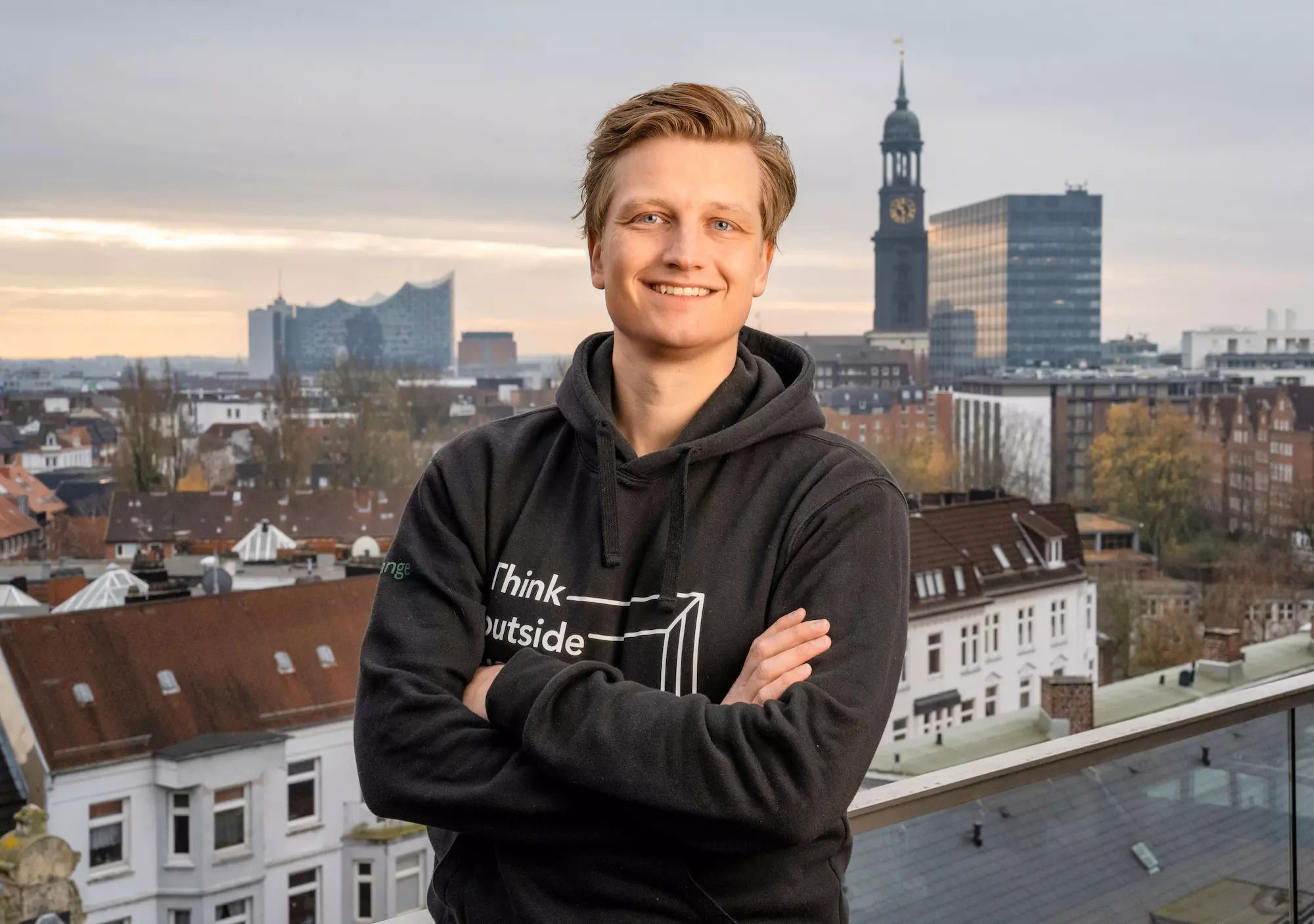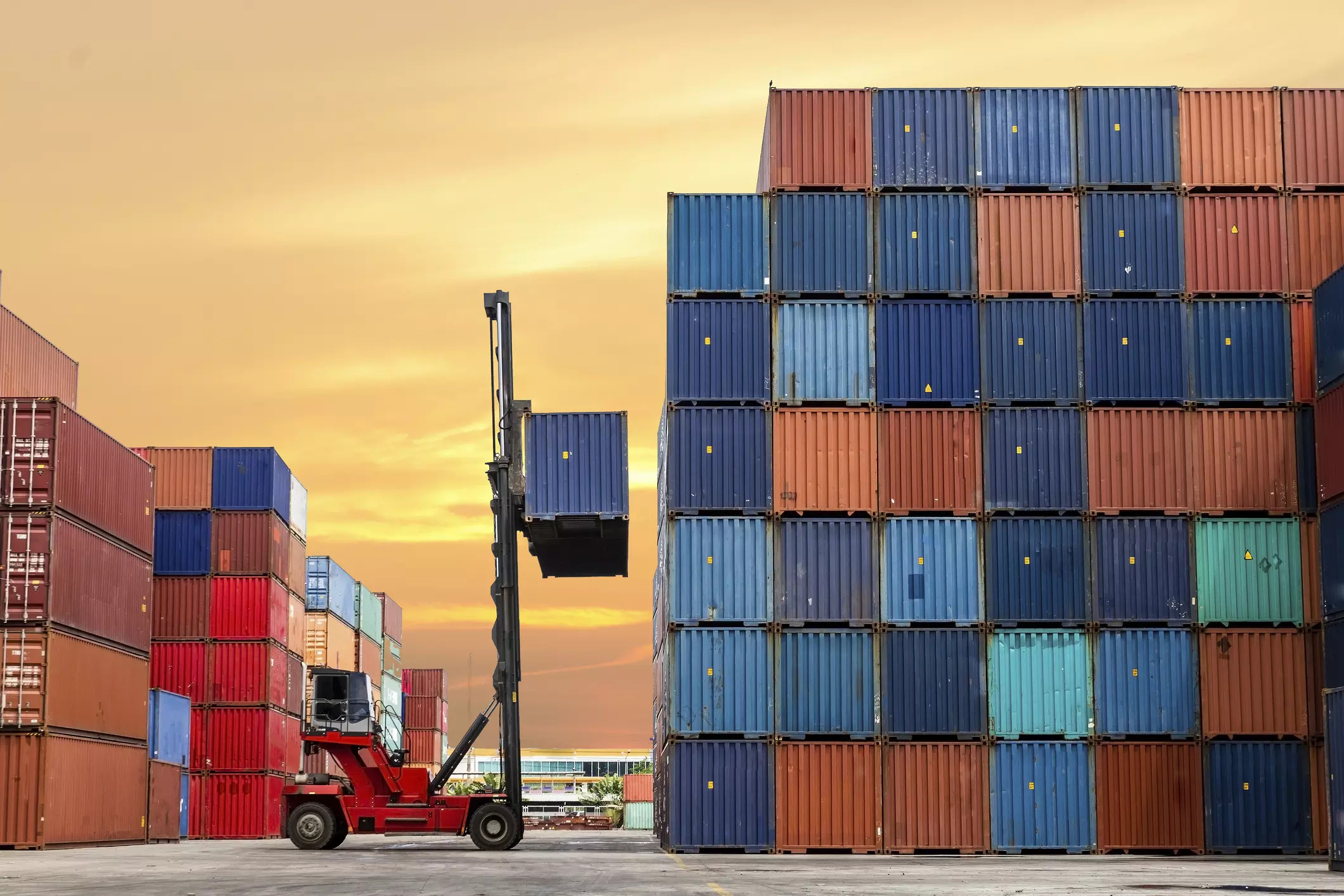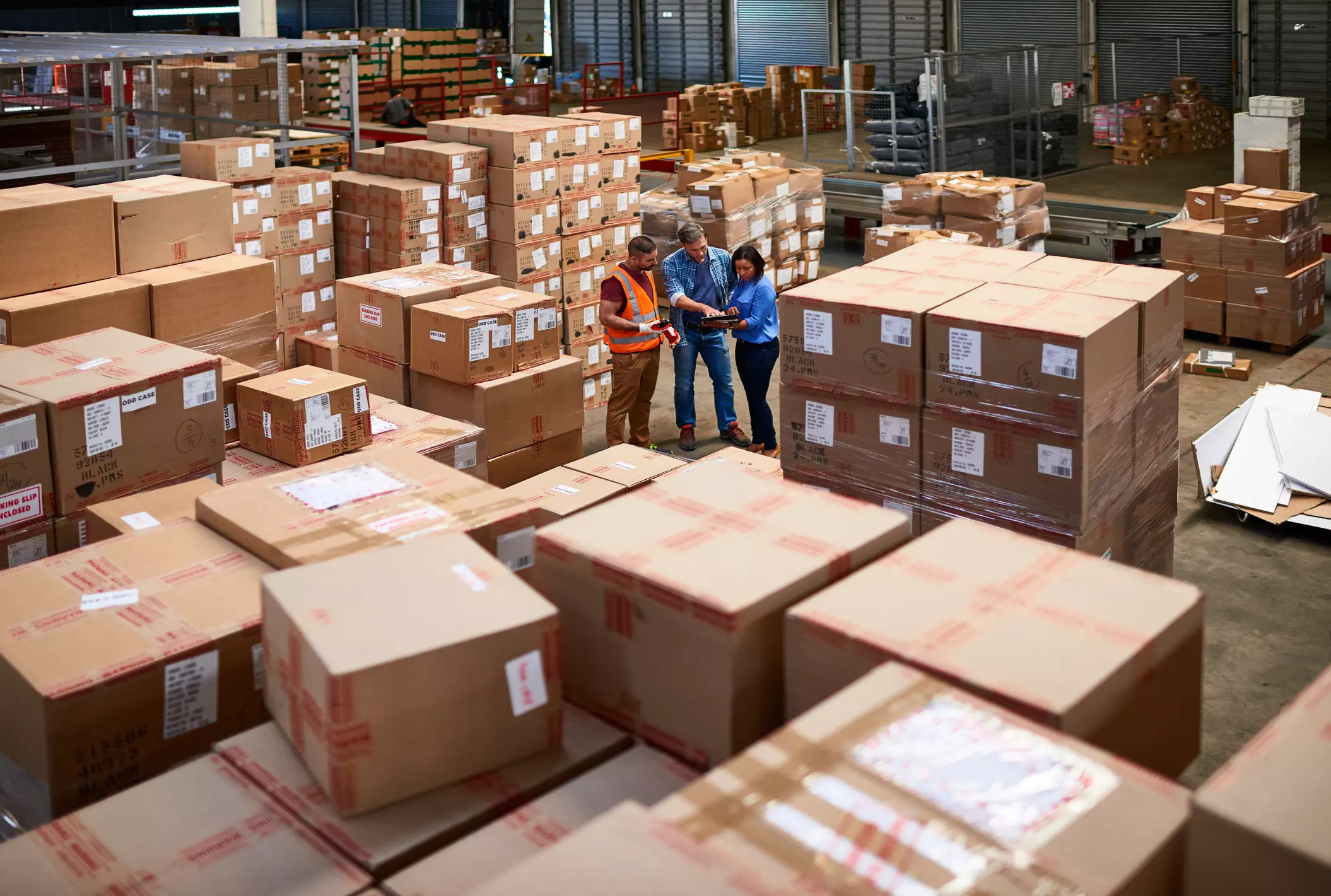MatchLog co-founders Harsh Vardhan Gupta and Dhruv Taneja (L-R).
The one thing Dhruv Taneja learnt while running his container depot business in Gandhidham was that an empty box can also be good for commerce. This runs against conventional thinking in logistics, where an empty container is considered a burden as it does not generate revenue but still adds to storage and transportation expenses.
Taneja’s business in 2008 was providing a parking lot near Mundra port for empty containers. Most containers with goods arriving at the port would be taken to the importer’s destination for unloading. The empty ones would be returned to a container depot nearby while the container operator tried to collect enough export orders to fill the boxes again. Then the empty containers would be taken to a loading point, filled with the goods, and returned to the depot. There it would await its turn to be dispatched to an overseas destination. This meant these huge empty metal boxes had to be loaded, unloaded and transported multiple times. Taneja saw an opportunity to make money by helping the container operators refill the metal boxes quicker while saving on transportation costs.
“India processes an average of 80 million TEU (twenty-foot equivalent unit) containers per annum. Out of this, 70-75% is on the west coast, and most of this traffic is around Hazira, Mundra, Nhava Sheva, Pipavav and Tuticorin. This means that containers are running empty for an average of 200 to 300 km. We realised that the logistics costs and the environmental impact of these movements are huge, but it is not a difficult problem to solve if you work it out,” he says.
The magic of container triangulation
As his company already had information about empty containers, he realised that the solution involved matching the empty boxes with exporters. All he had to do was create a solution to direct a loaded container leaving a port to, after uploading, to an exporter waiting to dispatch goods. That would ensure that the container was not empty for long and did not have to come back to the depot or port before being filled up. Once the empty container reaches the exporter, it can be filled up and taken to the port for dispatch. This reduces the dry runs of the containers and also saves logistic expenses. This exercise is otherwise known as container triangulation.
In July 2019, Taneja teamed up with two others to form MatchLog Solutions in Mumbai to do this matchmaking online. MatchLog’s triangulation system connects import containers with export demands.
So far, MatchLog has moved more than 2 lakh containers through its algorithm. That works out to a saving of about 60 million empty km (running containers empty). This has led to a reduction of 40,000 tonnes of carbon emissions, the company claims. It also provides transport management and tracking of consignments.

MatchLog has moved more than 2 lakh containers through its algorithm. That works out to a saving of about 60 million empty km (running containers empty).
Founders’ vision
Taneja started his container depot business in Gandhidham after completing an MBA in International Business from the Thunderbird School of Global Management in the US in 2006. While running his business in Gujarat, he met Abhishek Baheti, who would go on to become a co-founder. Baheti was well versed with the issue of dry container runs, as he was running a company called Step Logistics, which was into sea freight services. “We came across each other during industry meetings and found a common interest in solving this issue. It involves a lot of technology, which is where Abhishek comes into. We met Harsh Vardhan through LinkedIn,” says Taneja, who is the CEO of MatchLog. They found the third co-founder, Harsh Vardhan Gupta, on LinkedIn while looking for someone to help with operations and sales.
A global problem
The empty container run issue is a global problem. Transporting such boxes requires additional trips of trucks, leading to fuel and manpower costs, more time and avoidable carbon emissions.
To explain MatchLog’s solution, the co-founders use an example: When a container arrives at Mundra port in Gujarat, it goes through customs procedure and is then taken to the destination — say, a warehouse in Rajkot (importer’s place), about 260 km away. After the consignment is unloaded in Rajkot, the transporters are then informed about the next consignment (exporter’s location). This can be near Rajkot or further away. The truck then proceeds to the exporter’s location with the empty container to pick up the consignment and return to Mundra. This takes 34 days on an average for containers that have arrived in India to get loaded and dispatched from the ports. MatchLog has cut this turnaround time to 2-3 days.
Today, the company manages the movement of 4,000 containers a month. Taneja says they have onboarded more than 1 lakh transporters attached with the ports of Mundra, Hazira, Nhava Sheva, Pipavav, Chennai and Tuticorin.
Deepak Thacker, Founding Partner of Gujarat Logistics, says they have gained by using MatchLog’s services for almost three years. “We’ve been saving costs and emissions due to MatchLog’s mapping for imports and exports. Earlier we used to run the dry empty containers back to the depot. But now we send our vehicles directly to the next pickup destination. We’re seeing about 30-40% cost benefit. It benefits all the stakeholders,” he says.
MatchLog also provides container repair and exchange service. “They have container inventory at various places. For example, if the destination of the import consignment is near an airport but the loading for export is near a shipping port, and my container gets damaged, I can go to MatchLog’s container yard near the shipping port and get the container exchanged,” he explains.

Christian Roeloffs, Founder and CEO, Container xChange.
Easier said than done
Taneja points out that everyone in the ecosystem is aware of the dry runs and its multiple problems, but no one was doing anything about it. “In terms of seeming to be a very simple solution, it is. But because there are so many moving parts — multiple stakeholders; shipping lines who own containers; transporters who have the trailers; importers; exporters; customers whose agents are in charge of clearing the box — it seems challenging,” he says.
A lot of stakeholders are involved in each shipment and the problem is that they're not connected on a common data infrastructure, says Christian Roeloffs, Founder and CEO of Germany-based logistics tech firm Container xChange. “So oftentimes, one party doesn't know the status of a specific shipment until the container shows up, because the other party doesn't share that information. Oftentimes it’s not just two or three parties but many more are involved, including subcontractors. So, it's very difficult to really aggregate that data and make sure that you can match it,” he says.
Another problem is that every stakeholder has some data on shipping and container movement but all these are in different systems and formats. And people are reluctant to share data, he says.
For example, Roeloffs explain that shipping lines like to work with the same carrier. So, if you have a Maersk import booking, you have to match it with a Maersk export booking.
This problem also highlights the challenge of educating the stakeholders. Taneja finds it a cumbersome process to onboard the entire ecosystem. “People have been working in a certain way and they do not want to change their way of operating,” he says.
Both Roeloffs and Taneja say that there are only a handful of companies in the world working on building such a solution. These include MatchBack systems in the US and Avantida in Belgium.
Next: Going abroad
Roeloffs points out that one interesting way to attract stakeholders to such a platform is incentivisation; Avantida has been doing it. “So, for example, if you're an importer and you feed your data into the system, you get paid for providing that data. I think that is a very interesting incentive,” he says.

The empty container run issue is a global problem. Transporting such boxes requires additional trips of trucks, leading to fuel and manpower costs, more time and avoidable carbon emissions.
Taneja is confident their services will gain traction without such incentives. Investors share this sentiment of this startup that was bootstrapped by Taneja till December 2021. In 2022, MatchLog raised $3 million from Blue Ashva Capital, Rainmatter Climate Technologies (founded by Zerodha co-founders Nikhil and Nithin Kamath) and Capital A. In February 2024, it raised $1.5 million in a round led by July Ventures, Motion Ventures and Venture Catalyst.

The empty container run issue is a global problem.
Tracxn estimates the company’s valuation at $12.5 million.
The company is yet to be profitable. Taneja says they are targeting profit by the end of this fiscal year, with a revenue of Rs 40 crore. In FY23, it clocked a revenue of Rs 20 crore and earned Rs 24 crore in FY24.
The company is looking to sign contracts with global shipping lines for the triangulation service and is looking to expand services to the Middle East, Africa and Southeast Asia over 12 to 24 months. After reaching a target of 15,000 containers in India, it wants to get into value-added services such as the electric vehicle transport market. In the long run, MatchLog aims to build a global logistics chain network to enable savings of over 10 billion “wasted km” of empty containers and trucks.
(Originally published on May 23, 2024, 10:33:00 AM IST)

No comments:
Post a Comment